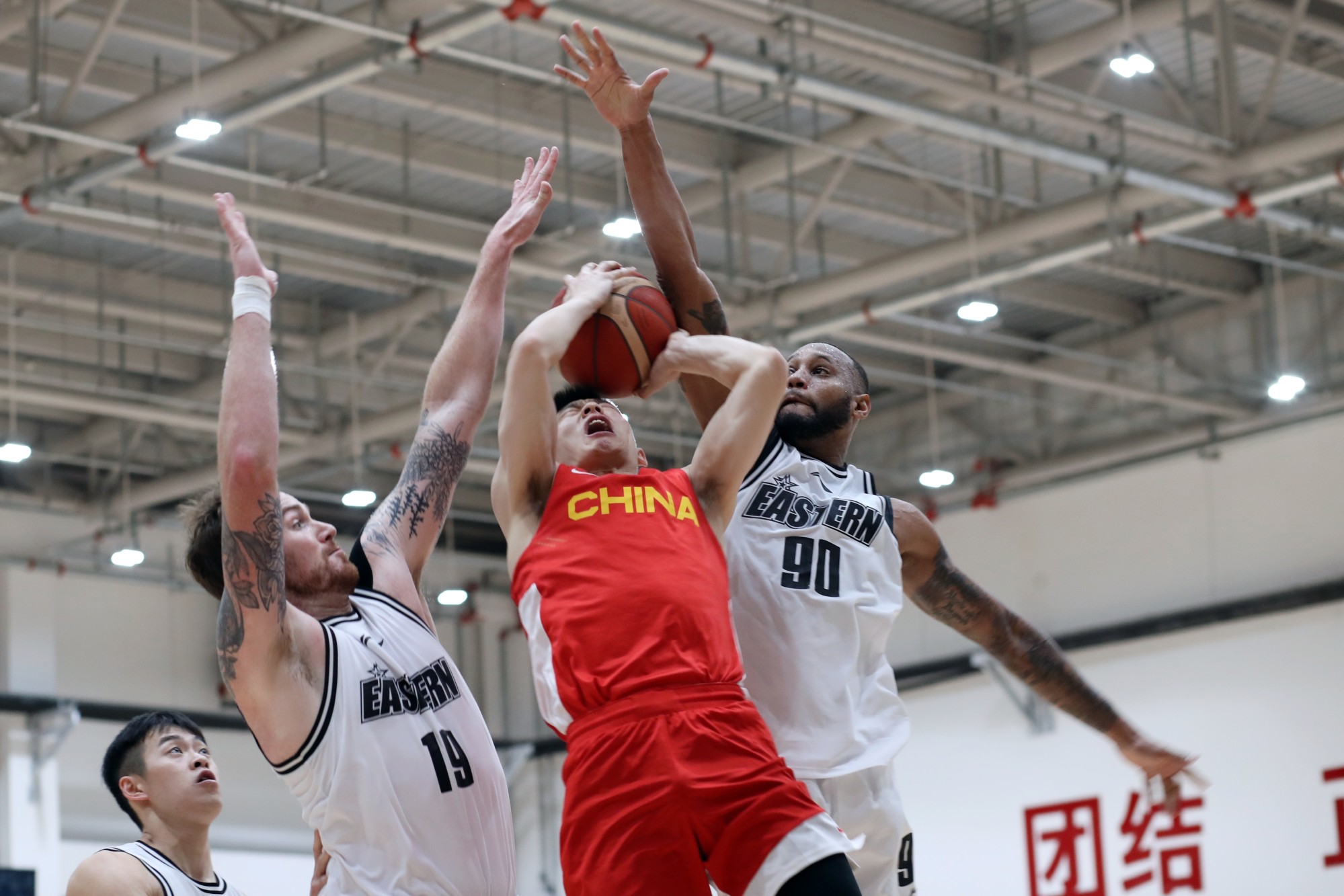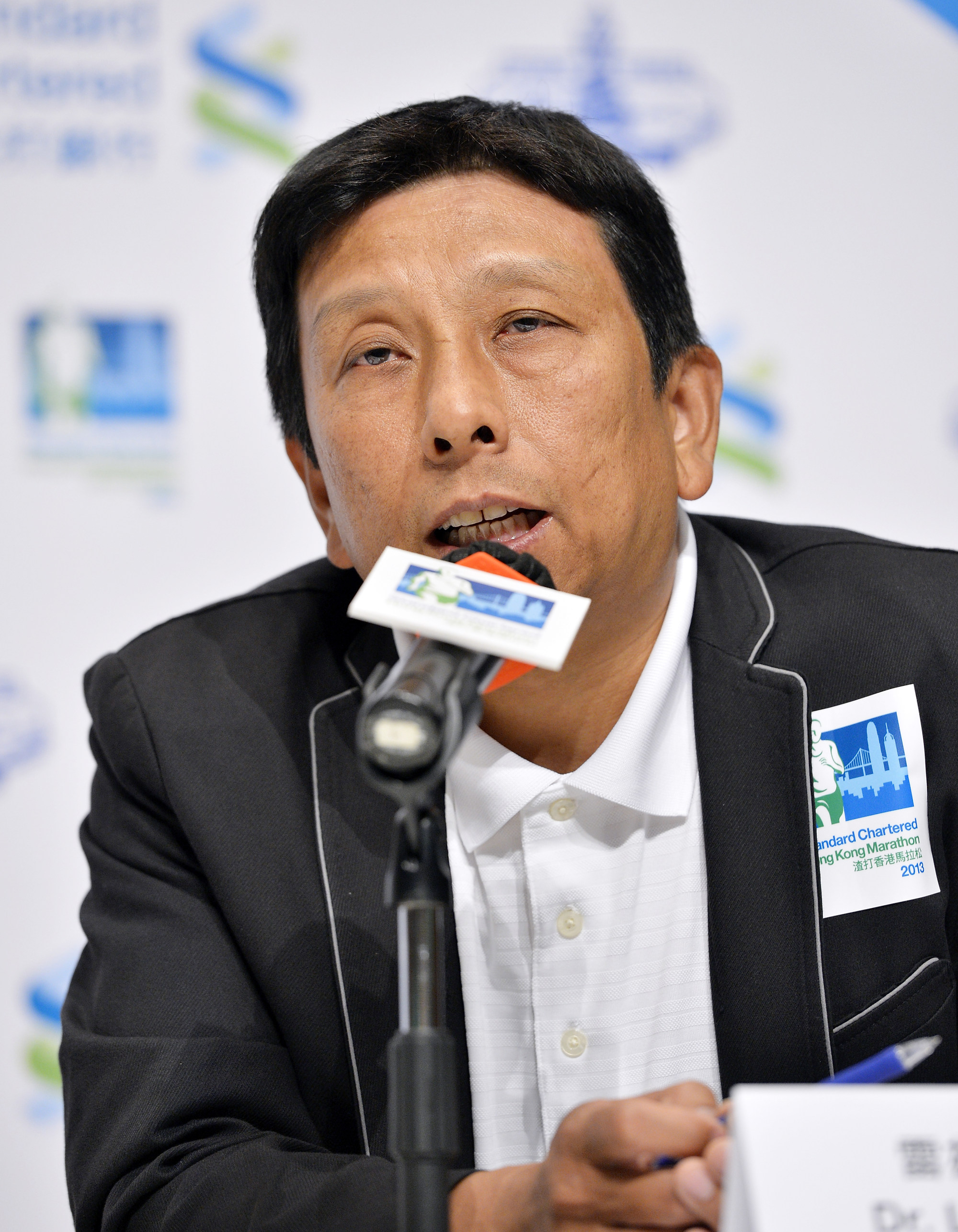Learn more

Hong Kong basketball sees opportunity in mainland China. Will the city’s football bosses?
- Football Association chairman is pessimistic despite Eastern basketball club preparing for more talks about joining mainland Chinese league
- Finding ways for Hong Kong teams to play in mainland can help other sports to expand their audience and increase participation, scholar argues
%20-%20Mike%20Chan.jpeg?itok=EQbwYm3R&v=1669714688)
Hong Kong’s sports teams should look to play in mainland China’s domestic leagues if they want to improve, a leading academic in the city has said, but football bosses dismissed the idea as unrealistic.
Dr Lobo Louie Hung-tak, associate head of the department of health and physical education at Education University, said “going north” would be something “well worth exploring” and could help develop sport in Hong Kong.
Two of the city’s basketball teams have already started making the move, with Hong Kong Bulls set to compete in China’s second-tier National Basketball League this summer, and Hong Kong Eastern working on joining the Chinese Basketball Association, the country’s top tier.
And while Hong Kong Football Association chairman Pui Kwan-kay said he believed joining the domestic set-up across the border would be a good idea because of the access to a bigger audience, the cost made the chances of doing so “non-existent”.

“We are talking about HK$20 million (US$2.6 million) to HK$30 million for the biggest spender in our league. The difference [in terms of investment required] is making investors deterred.
“Football is unlike basketball in terms of running a team – the cost is much higher.”
Pui also said his organisation would not press to have a team playing in China unless “a really interested investor” stepped up to back the move.
However, the limitations of Hong Kong’s sporting competitions adds to the argument for looking beyond the city’s borders and challenging players and athletes, in the hope of equipping them to compete internationally.
New Hong Kong Golden Bulls side to play in China’s National Basketball League
Louie said the area covered by the Beijing government’s Greater Bay Area development plan – covering nine municipalities in Guangdong province as well as Hong Kong and Macau – represented an untapped market.
“Team sports need a market – the more people watching or involved, the more prosperous any league can be,” he said. “All four major sports in North America are team sports, and then there are the professional football and basketball leagues across the world.
“More youths will start playing the sport if it is watched by more people, and the population in the Greater Bay Area will help. Teams can then pick from a bigger player pool in the future.
“Teams’ merchandise, and sports tourism when the mainland Chinese teams come to town for away fixtures, are also untapped revenues.”

Eastern official Wilson Choi Fong-yue said his team had plenty to gain, but also to lose if they did not manage the move carefully.
“We need to develop basketball as a sports industry so that we can stop asking the government for funding,” he said.
“We can wait [to get into the CBA] but we need to get it right.”
The Post asked the city’s Culture, Sports and Tourism Bureau, and Hong Kong Sports Institute (HKSI) for their views on having more competition against teams and athletes from the mainland on a regular basis.
The HKSI said “any matters concerning competitions and our athletes are part of the training programme and should be addressed by respective head coaches”.
The government bureau said in a written reply that its backing for the sports sector included “supporting local clubs in their participation in major sports competitions in the mainland and the region”.

Hong Kong’s sports teams should look to play in mainland China’s domestic leagues if they want to improve, a leading academic in the city has said, but football bosses dismissed the idea as unrealistic.
Dr Lobo Louie Hung-tak, associate head of the department of health and physical education at Education University, said “going north” would be something “well worth exploring” and could help develop sport in Hong Kong.
Two of the city’s basketball teams have already started making the move, with Hong Kong Bulls set to compete in China’s second-tier National Basketball League this summer, and Hong Kong Eastern working on joining the Chinese Basketball Association, the country’s top tier.
And while Hong Kong Football Association chairman Pui Kwan-kay said he believed joining the domestic set-up across the border would be a good idea because of the access to a bigger audience, the cost made the chances of doing so “non-existent”.
“We are talking about HK$20 million (US$2.6 million) to HK$30 million for the biggest spender in our league. The difference [in terms of investment required] is making investors deterred.
“Football is unlike basketball in terms of running a team – the cost is much higher.”
Pui also said his organisation would not press to have a team playing in China unless “a really interested investor” stepped up to back the move.
However, the limitations of Hong Kong’s sporting competitions adds to the argument for looking beyond the city’s borders and challenging players and athletes, in the hope of equipping them to compete internationally.
Louie said the area covered by the Beijing government’s Greater Bay Area development plan – covering nine municipalities in Guangdong province as well as Hong Kong and Macau – represented an untapped market.
“Team sports need a market – the more people watching or involved, the more prosperous any league can be,” he said. “All four major sports in North America are team sports, and then there are the professional football and basketball leagues across the world.
“More youths will start playing the sport if it is watched by more people, and the population in the Greater Bay Area will help. Teams can then pick from a bigger player pool in the future.
“Teams’ merchandise, and sports tourism when the mainland Chinese teams come to town for away fixtures, are also untapped revenues.”
Eastern official Wilson Choi Fong-yue said his team had plenty to gain, but also to lose if they did not manage the move carefully.
“We need to develop basketball as a sports industry so that we can stop asking the government for funding,” he said.
“We can wait [to get into the CBA] but we need to get it right.”
The Post asked the city’s Culture, Sports and Tourism Bureau, and Hong Kong Sports Institute (HKSI) for their views on having more competition against teams and athletes from the mainland on a regular basis.
The HKSI said “any matters concerning competitions and our athletes are part of the training programme and should be addressed by respective head coaches”.
The government bureau said in a written reply that its backing for the sports sector included “supporting local clubs in their participation in major sports competitions in the mainland and the region”.
